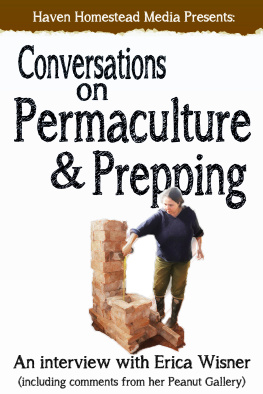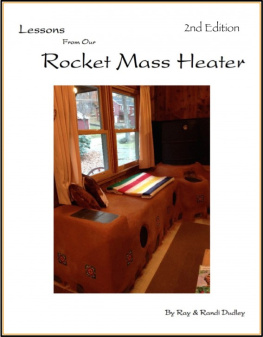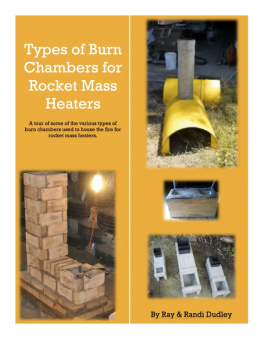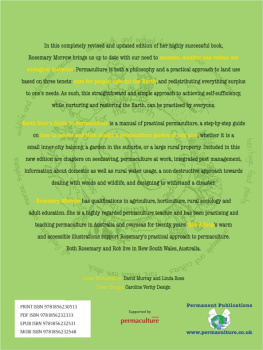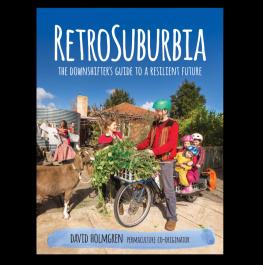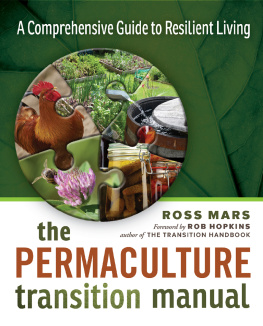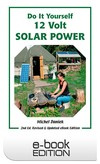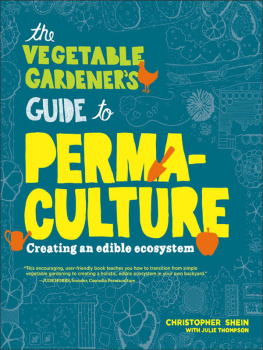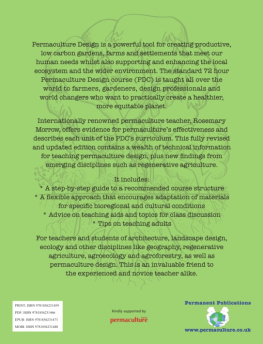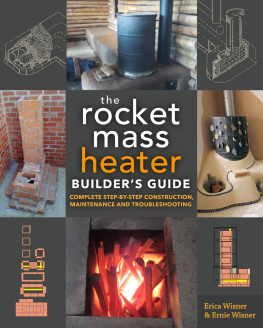CREATED BY JUTOH - PLEASE REGISTER TO REMOVE THIS LINE
Conversations on Permaculture and Prepping: An Interview with Erica Wisner (and her peanut gallery)
Copyright 2015 Lindsay Hodge
All rights reserved. This book, or any portion thereof may not be reproduced or used in any manner without the express written permission of the publisher except for the use of brief quotations in a book review.
Published in the United States of America
First Printing, 2015
ISBN (not assigned)
Haven Homestead Media
3479 Centralia Alpha Rd
Onalaska, WA 98570
www.havenhomestead.com
Image Credits:
All Images of Ernie and Erica were grabbed from their website or blog.
Photo of Haven Homesteaders was provided by Lindsay Hodge.
Big thanks to the photographers!
CREATED BY JUTOH - PLEASE REGISTER TO REMOVE THIS LINE
Table of Contents
CREATED BY JUTOH - PLEASE REGISTER TO REMOVE THIS LINE
Introduction
Dear Reader,
When you hear the terms permaculture and preppping, what do you think of?
It's my guess that most folks think of permaculture and prepping as vastly different topics. Typically folks think of permaculture as a mostly hippy, spiritual, liberal sort of movement, and think of prepping as a militaristic, doomsday, conservative sort of movement.
For years, my husband Chris and I have followed both of these movements. We see that, while some folks take it to the extreme (like doomsday preppers, or the purple permaculture folks), there is a practical way for anyone to apply both of these topics in order to build a sustainable life. Permaculture is a design science that is based on three main ethics: Earth Care, People Care, and Return of Surplus. There are principles, which you can apply to your garden, your business, and your life in general. As a way of life, there are certain things you do to keep yourself in line with these ethics and principles. It is plain and simple, a good way to live.
Similarly, the main ethic behind the preparedness movement is People Care. Preparedness is really about you and your family being properly prepared for daily life. There are six elements of personal and family preparedness: Social-Emotional-Spiritual Resilience; Literacy and Education; Career Development; Financial and Resource Management; Home Production and Storage; and Physical Resilience. There is definitely more to prepping than bunkers, bullets, and beans!
Id like to think that even though preparedness and permaculture are a little like apples and oranges, they are both very important to changing the world for the better. After all, they are both fruit, and dont apples and oranges go great together in a fruit salad!?! (Im thinking of calling it the Fruit Salad of Sustainable Living What do you think?)
Id also like to take it one step further by saying that permaculture and preparedness are both necessary to living a more sustainable life. In order to pursue this line of thinking, Ive decided to interview experts in both fields to get their take on the matter. Most of these interviews were done via email. The opinions and viewpoints expressed herein are that of the speakers. This is meant to be an open, journalistic experience where hard questions get asked, fun questions too, and folks get to see the world from someone elses point of view.
Please join me as we learn from these gurus. Lets make this world a better place together!
Sincerely,
Lindsay Hodge @ Haven Homestead
www.havenhomestead.com
CREATED BY JUTOH - PLEASE REGISTER TO REMOVE THIS LINE
The Interview
(Today's interview is with Ernie and Erica Wisner, Rocket Mass Heater Educators. They teach workshops, write books and do all sorts of fun things, which you can check out by going to their website, http://www.ernieanderica.info)
HH: Who are you?
Erica: We are Ernie and Erica Wisner. I am Erica. My favorite self-description so far is "feral educator" - I've spent most of my working life doing some kind of informal education, but very little in a formal classroom setting.
Ernie: And I'm Ernie. Erica's Peanut Gallery. I also happen to be a fisherman and veteran, among other things.
HH: What is your niche?
Erica: We are particularly well known for teaching people to build rocket mass heaters. This blurs into a little broader niche dealing with natural building, appropriate technology, and particularly with simple solid-state technologies dealing with earth and fire (heaters, cook stoves, cob ovens).
We also have less well-known niches teaching traditional Arctic boat building, outdoor skills, and nature-based crafts. Ernie's heritage is commercial sailing and maritime trades (life-support systems are part and parcel). I'm more from an academic background, science and arts, with some good ole' horse sense thrown in from the farmers and Navy men a few generations back.
HH: There are extremes in every niche, where do you find yourself in spectrum of your niche? Why?
Erica: As natural builders go, we're pretty function-driven. Some people like to groove on curvy plasters, and while we do enjoy a nice finish, we care more about getting rid of the smoke and keeping people warm. As rocket people go, we're pretty focused on delivering heat in conventional buildings. Our choice of plans to publish are based on a full year's owner satisfaction, rather than a successful prototype or fancy lab equipment. Due to Ernie's disabling injury, we focus on delivering education and information rather than building things for people.
As builders go, we are not contractors - we are more on the R&D (research and development) end, and self-taught at that. Neither of us has apprenticed with a master mason, for example, though we've had some talented tradespeople in our workshops and learned a lot from them. However, we each have some formal training and family history that help us have solid practical relationships with other builders. And we are more on the ecological and low-budget end: our purpose is to serve as many people as possible, and maybe save some trees and salmon in the process, rather than looking for one or two high-end clients to make our fortune.
Ernie: Erica speaks a lot about social relationships, while I prefer to focus on the physical.
HH: Erica, I know you and Ernie are into Rocket Mass Heaters. How does R-M-H spell preparedness or permaculture or both?
Erica: A Rocket Mass Heater (sometimes abbreviated RMH) is a super-efficient, wood-burning heater that can be built with reclaimed scrap materials or readily-available parts (firebrick, stovepipe, a barrel) and lasts for decades. They are completely off-grid so they are not vulnerable to power failures, price increases, or grid failures for stuff like natural gas. And they cut firewood use down to something like 1/4 or less compared with a wood stove, so even if price increases drive up the cost of local firewood, most people will still save money. We've run one in a coastal climate just on scrap wood we picked up for free, and branches that came off trees in the yard - less than half a cord per year. On top of a mountain 15 miles from the Canadian border, we still only use one or maybe two cords per year. Most of the shoulder seasons, the heater just 'coasts' on the thermal mass, soaking up heat during the day and holding the temperature stable at night.
HH: How did you get started with permaculture or preparedness (or both)?
Erica: Ernie and I came to permaculture from different directions. And preparedness kind of snuck up on us - where many people are prepping for a hypothetical disaster, we had the experience of surviving one of the more common kinds of personal disasters and rebuilding our lives from scratch, with the help of family and friends.

